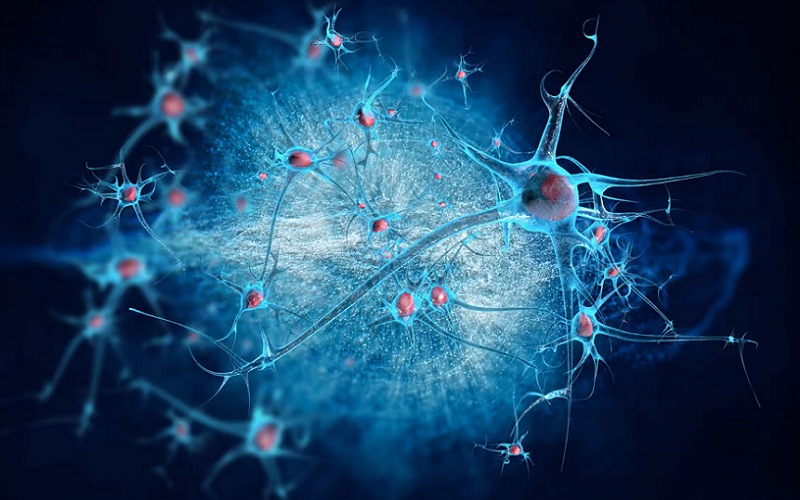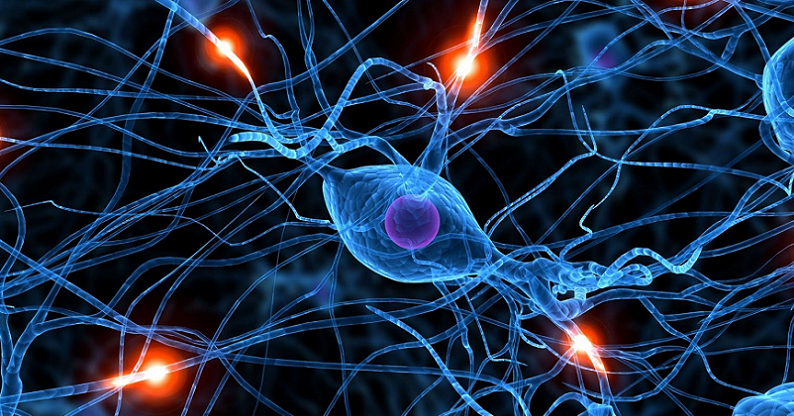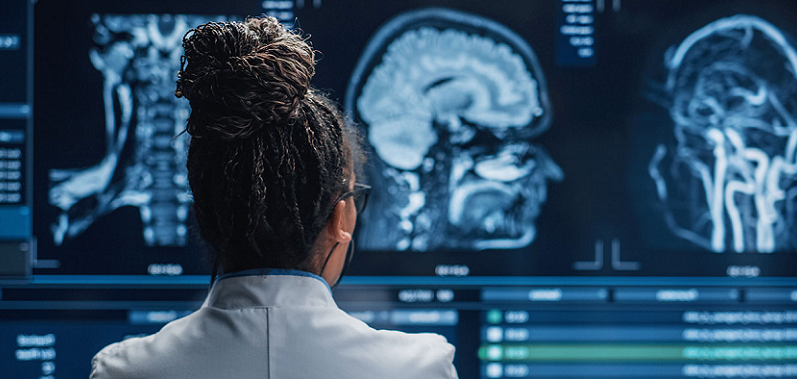
In the vast orchestra of hormones that regulate our body’s functions, gastrin has traditionally been recognized as the conductor for stomach acidity, orchestrating our digestive processes. However, recent scientific discoveries have unveiled a new, unexpected melody to gastrin’s repertoire — a connection to the intricate world of brain health and neural plasticity.
Contents
The Biological Basics: What is Gastrin?
As we journey into understanding the multifaceted roles of gastrin, it’s imperative to lay down the foundation. What exactly is gastrin? This section aims to demystify the biological aspects of this hormone, providing you with a solid grasp of its origins and primary functions, particularly within the gastrointestinal system.
Definition and Formation of Gastrin
Gastrin is a peptide hormone predominantly produced in the stomach’s antrum and the duodenum in the small intestine. It’s secreted by specialized cells known as G-cells. The primary trigger for gastrin release is the presence of food in the stomach, especially proteins. Factors like vagal nerve stimulation, hypercalcemia (increased calcium levels in the blood), and certain pharmacological agents can also stimulate its release. On the flip side, a highly acidic pH in the stomach tends to inhibit gastrin secretion.
Role in the Gastrointestinal System
Having established its basic definition and where it originates, let’s delve deeper into how gastrin carries out its duties in our gastrointestinal system.
Stimulation of Acid Production
The primary function of gastrin is to stimulate the secretion of hydrochloric acid (HCl) by the parietal cells of the stomach. This acid plays a crucial role in digestion, particularly in breaking down proteins, absorbing certain nutrients, and killing harmful pathogens that might be present in our food.
Impact on Gastric Mucosa
But gastrin’s role doesn’t stop at acid production. It also promotes the growth of the gastric mucosa (the stomach’s lining) and increases the muscle contractions in the stomach, ensuring the efficient mixing and mechanical breakdown of food. Gastrin, therefore, not only ensures that the stomach produces the right environment for digestion but also that it physically processes the food effectively.
Unveiling the Unexpected: Gastrin’s Effect on the Brain
As we pivot from gastrin’s traditional domain—the gastrointestinal system—we embark on a more enigmatic terrain. Recent studies have hinted at a profound connection between gastrin and the brain. For many, this revelation may seem out of left field. After all, how does a hormone primarily associated with stomach acidity find relevance in the vast neural networks of our brain?
Research Linking Gastrin to Brain Health
The realm of neuroscience is replete with ever-evolving discoveries, and the link between gastrin and brain health has been one of the more recent and captivating findings.
Preliminary Studies and Findings
Early investigations into gastrin’s role in the brain emerged when researchers detected the presence of gastrin receptors in the brain. This discovery raised a fundamental question: Why would the brain have receptors for a hormone primarily involved in digestion? Subsequent studies demonstrated that gastrin could influence various neural functions. Experimental models showed that gastrin potentially modulated memory, learning, and even mood [1].
Pivotal Experiments and Results
One groundbreaking study revealed that administering gastrin could promote the formation of new neurons in adult brains, a process known as neurogenesis. This was a momentous find given that, for a long time, it was believed that adult brains could not generate new neurons. Further, gastrin was observed to enhance synaptic plasticity, the ability of synapses (connections between neurons) to strengthen or weaken over time, which is a crucial process for learning and memory.
Mechanisms Behind the Connection
Now, with these compelling findings in place, it’s essential to probe deeper into the underlying mechanisms that explain gastrin’s influence on our brain.
Impact on Neurogenesis
Gastrin seems to upregulate certain growth factors, specifically brain-derived neurotrophic factor (BDNF). BDNF is instrumental in promoting the survival of existing neurons, facilitating the growth and differentiation of new neurons and synapses. By boosting BDNF levels, gastrin effectively encourages the brain to keep rejuvenating and reshaping itself [2].
Influence on Synaptic Plasticity
Gastrin also interacts with other neurotransmitters and neuromodulators in the brain. Some studies have shown that gastrin can modulate the release of gamma-aminobutyric acid (GABA), a chief inhibitory neurotransmitter in the brain. This modulation can influence synaptic strength, making neural networks more adaptable and responsive to new information.

Brain Plasticity: A Brief Primer
Having established the intriguing connection between gastrin and the brain, it’s pertinent to delve deeper into one of the most significant revelations from the research: brain plasticity. But what exactly is brain plasticity? Often heralded as the cornerstone of the brain’s adaptability and resilience, plasticity embodies the brain’s ability to reorganize and adapt.
Definition and Importance of Neural Plasticity
Neural plasticity, commonly referred to as brain plasticity or neuroplasticity, is the brain’s extraordinary ability to reorganize itself by forming new neural connections throughout life. It allows individual neurons (nerve cells) in the brain to compensate for injury and disease and adjust their activities in response to new situations or changes in the environment.
Historically, it was believed that post childhood, the human brain became a relatively static organ. However, groundbreaking research over the past few decades has shattered this misconception. The brain is an ever-evolving organ, continuously adapting, learning, and re-mapping itself in response to experiences [3].
Factors Influencing Plasticity
Understanding the broad concept of brain plasticity is one thing; grasping the myriad factors that influence it is another. Several determinants play a role in the extent and nature of neural adaptability.
Age and Development
While plasticity occurs throughout life, its nature and extent vary with age. During early childhood, the brain exhibits heightened plasticity, allowing it to adapt rapidly. This heightened state enables children to learn new languages or musical instruments more quickly than adults. As we age, certain aspects of plasticity may diminish, but they never vanish entirely. However, the type of plasticity might shift—whereas younger individuals might more easily gain new skills, older individuals might better consolidate and utilize existing knowledge.
Environment and Learning
Environments rich in novel experiences, challenges, and learning opportunities can enhance brain plasticity. Engaging in mentally stimulating activities, like reading, playing musical instruments, or even puzzles, can boost neuroplasticity. On the contrary, environments with limited stimuli can impede the brain’s adaptive capacities.

Gastrin and Neurodegenerative Diseases
With a clearer understanding of both gastrin’s potential in the brain and the fluid nature of brain plasticity, we find ourselves at a crossroad where these concepts intersect with neurodegenerative diseases. These diseases, characterized by the progressive degeneration of structure and function of neurons, pose significant challenges to medical research and intervention. But what if gastrin could offer a beacon of hope in this landscape?
Alzheimer’s Disease and Cognitive Decline
Alzheimer’s Disease, a name synonymous with the tragic erosion of memory and cognition, is a leading example of neurodegeneration. The potential role of gastrin in addressing its effects brings a glimmer of optimism [4].
Current Research Findings
Recent studies have demonstrated that gastrin can attenuate some of the pathological features associated with Alzheimer’s Disease. One of the hallmarks of Alzheimer’s is the accumulation of beta-amyloid plaques in the brain, which interfere with neuron function. Gastrin appears to reduce the formation of these plaques in certain experimental models. Furthermore, in some studies, the hormone has been observed to enhance cognitive performance in subjects with initial signs of memory decline.
Potential Therapeutic Uses of Gastrin
Given these promising findings, there’s a burgeoning interest in leveraging gastrin as a therapeutic agent for Alzheimer’s. While it’s still early days, there’s hope that gastrin-based treatments could provide a means to delay the onset, slow the progression, or even ameliorate some symptoms of Alzheimer’s. However, more comprehensive clinical trials and long-term studies are required to ascertain its full potential.
Parkinson’s Disease and Motor Dysfunction
Parkinson’s Disease, characterized by motor symptoms like tremors, rigidity, and bradykinesia, is another frontier where gastrin’s potential is being explored.
Evidence Linking Gastrin to Treatment
Research suggests that gastrin, in conjunction with other hormones like cholecystokinin, may play a role in protecting dopaminergic neurons—those primarily affected in Parkinson’s. Preliminary studies have shown potential benefits in both halting the disease’s progression and alleviating some of its symptoms [5].
Ongoing Studies and Future Prospects
While these initial results are certainly encouraging, the research is still in nascent stages. Efforts are underway to understand the precise mechanisms through which gastrin might exert protective effects in the context of Parkinson’s. If these mechanisms can be pinpointed and harnessed, gastrin-based therapies might soon become a revolutionary addition to the arsenal against Parkinson’s Disease.
References
[1] Gastrin-releasing peptide receptors in the central nervous system: role in brain function
[2] Gastrin-releasing peptide receptor signaling
[3] Structural insights into human brain–gut peptide cholecystokinin receptors
[4] Gastrin, cholecystokinin and gastrointestinal tract functions
[5] How Gastrin-Releasing Peptide Opens the Spinal
Gate

